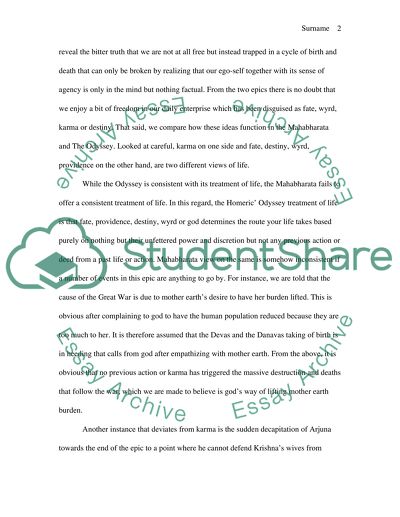Cite this document
(“Indian epic Mahabharata and Homers The Odyssey Comparison Essay”, n.d.)
Retrieved from https://studentshare.org/literature/1448174-indian-epic-mahabharata-and-homers-the-odyssey-comparison
Retrieved from https://studentshare.org/literature/1448174-indian-epic-mahabharata-and-homers-the-odyssey-comparison
(Indian Epic Mahabharata and Homers The Odyssey Comparison Essay)
https://studentshare.org/literature/1448174-indian-epic-mahabharata-and-homers-the-odyssey-comparison.
https://studentshare.org/literature/1448174-indian-epic-mahabharata-and-homers-the-odyssey-comparison.
“Indian Epic Mahabharata and Homers The Odyssey Comparison Essay”, n.d. https://studentshare.org/literature/1448174-indian-epic-mahabharata-and-homers-the-odyssey-comparison.


